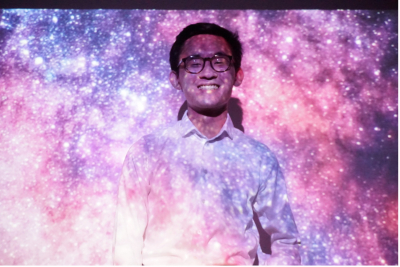First Cohort of AADS Minors to Graduate in May

David Lee (T ‘23) is one of the first students to minor in Asian American & Diaspora Studies at Duke. The AADS program started in 2018 and the minor was approved for students for Fall 2022. Its first class graduates this spring.
Lee has been involved in student organizing for Asian American Studies since his first year, in spaces where maybe “the real Asian American studies are the friends we made along the way.” He joined the Asian American Studies Working Group (AASWG) and found not only a much-lauded base of student investment in Asian American Studies, but also a kind of “political home” which can be rare at Duke.
Over the last 20 years, AASWG and its predecessors have been mobilizing for the establishment of an Asian American Studies department at Duke — five years ago, their demands became reality with the establishment of a program. Last year, the program expanded into a minor.
During Lee’s first year at Duke, AADS existed, but he noted how far AADS has come even just in the last four years.
“The establishment of the minor made it easier to take AADS classes and be in community with the people you meet,” he said, “and new faculty hires and the expansion of AADS classes were both an integral part of that growth.”
Now, after a series of Keohane Distinguished Lectures in Asian American Studies and with a new senior faculty hire on the horizon, it’s clear that the role played by AADS in the university is growing. As AADS becomes more scaffolded within the institution, though, it also inevitably faces different pressures than before.
Lee said that many people have the misconception that AADS is only for Asian or Asian American students who want to “learn more about their identity.” While he said this is an important component to many students, it’s much more than that.
“To study AADS is to study the historical significance and contemporary relevance of Asian American history, literature, film, culture and politics in the grand scheme of American society and racialization,” said Lee. “AADS is for everyone: students and faculty, Asian American and non-Asian American. Regardless of where someone's hesitance comes from, my advice to them would be to take the dive and try to take a class.”
Lee pushes back against the idea that some students might feel the classes (and by extension the minor) might not be “useful.”
“With the larger variety of classes being offered now with our growing list of professors (growing even larger next year with the current hiring process), I can guarantee that there's a class for everyone in the AADS program. I promise, you'll be done with the minor before you even know it,” he said.
The opportunities that AADS provides to learn with “amazing professors and people” are invaluable, Lee said, but are ultimately limited to certain kinds of knowledge. Spaces like AASWG have historically functioned not only to organize energy towards the institutionalization of Asian American Studies, but also in critical recognition of the limitations of university systems like Duke’s.
Asian American Studies, in short, “goes beyond what you can learn in a classroom,”
After graduation, Lee will be living in Durham and continuing research in the Pathology department, with the hopes to attend graduate school the following year.
Among Lee’s accomplishments at Duke, one he’s most proud of is the fact that the AADS minor even exists. He’s amazed and surprised how far the program has come since its inception in 2018 and during his four years here.
“From expanding classes to the wonderful new faculty all the way to the minor itself, AADS has grown into a program that speaks for itself,” he said. “I'm proud that the labor of the hundreds of students who pushed for AAS before me was not in vain and that future students have the opportunities to engage with Asian American Studies in more ways than I could have ever imagined at Duke.”
